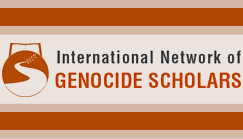Event Title
Will the Rubber Hit the Road: Dealing with Conflict-Related Sexual Violence in Ukraine
Submission Type
Paper
Abstract
In 2017 the OHCHR published a report highlighting several dozen cases of conflict-related sexual violence (CRSV) in eastern Ukraine and occupied Crimea. However, neither are these and further cases of CRSV extensively discussed in Ukraine, nor the justice seems to be rendered in the nearest future. In fact, the problem is more complex than just passivity of political power and civil society in discussing and properly punishing the crimes. It might be traced to the general attitude in Ukraine to the issue of gender-based violence as well as precedents of delayed response to the mass atrocities of the past. For instance, the issue of Holodomor of 1932-33 was brought to the wide national discourse only in the end of 1990s and its gender aspect was addressed as research problem just a few years ago.
Thus, I will analyse the current situation with prosecution of CRSV in Ukraine and historical, social and legal circumstances impeding it. On the part of historical circumstances, the parallels will be drawn with delayed justice for the atrocities of the Soviet totalitarian regime in Ukraine. General social setting in the country and situation with gender-based violence and discrimination will be discussed as substantial contributing factors. Finally, based on the case study (e.g. the notorious “Tornado case”), attention will be drawn to the failure of existing legal framework to tackle such crimes as well as lack of readiness of prosecutor`s offices and courts to effectively prosecute them. As result of the analysis, possible solutions will be offered.

Will the Rubber Hit the Road: Dealing with Conflict-Related Sexual Violence in Ukraine
In 2017 the OHCHR published a report highlighting several dozen cases of conflict-related sexual violence (CRSV) in eastern Ukraine and occupied Crimea. However, neither are these and further cases of CRSV extensively discussed in Ukraine, nor the justice seems to be rendered in the nearest future. In fact, the problem is more complex than just passivity of political power and civil society in discussing and properly punishing the crimes. It might be traced to the general attitude in Ukraine to the issue of gender-based violence as well as precedents of delayed response to the mass atrocities of the past. For instance, the issue of Holodomor of 1932-33 was brought to the wide national discourse only in the end of 1990s and its gender aspect was addressed as research problem just a few years ago.
Thus, I will analyse the current situation with prosecution of CRSV in Ukraine and historical, social and legal circumstances impeding it. On the part of historical circumstances, the parallels will be drawn with delayed justice for the atrocities of the Soviet totalitarian regime in Ukraine. General social setting in the country and situation with gender-based violence and discrimination will be discussed as substantial contributing factors. Finally, based on the case study (e.g. the notorious “Tornado case”), attention will be drawn to the failure of existing legal framework to tackle such crimes as well as lack of readiness of prosecutor`s offices and courts to effectively prosecute them. As result of the analysis, possible solutions will be offered.





Comments
View the agenda item.
View Iuliia Anosova's bio.